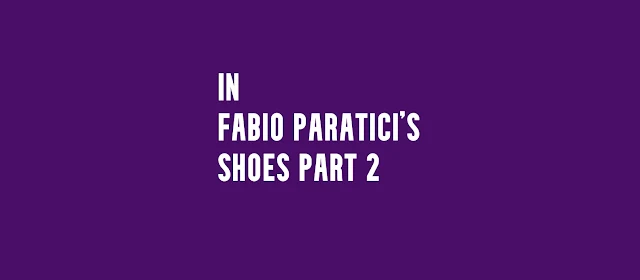In Fabio Paratici's Shoes Part 2
3 min read
In Fabio Paratici's Shoes Part 2
As the Managing Director of Football at Tottenham Hotspur, I recognize the importance of sports psychology in achieving success on and off the pitch.
I would work to integrate sports psychology into our overall approach to player development and team culture, and would consider hiring more than one dedicated sports psychologist to work specifically with our first XI squad.
Before I go into some of the ways I would use sports psychologists to support our team, let me nudge you for a moment.
Take a supporter, who is only actually a supporter for probably 70-80 minutes of a 90 minute game and hardly ever on social media, and we'll use Twitter as an example.
The players performance is affected by what people write on Twitter, why?
Because negative people on Twitter create a negative atmosphere surrounding the club, which journalists pick up on and write pieces to get clicks from the negative people.
These people are not supporting the club, they are slagging it off all the time.
They have a problem, but do they see they have a problem? No.
Are they, therefore, going to seek help to resolve their problem? No.
Are they going to listen to your advice to help them see they have a problem? No.
If these people who are the problem, going to change? No.
Then, why is a professional footballer going to seek help for a problem he doesn't know he has?
Unless seeing a sports psychologist is a compulsory part of training, few players are actually going to seek them out to help their mentality.
This a 1st XI sports psychologist is not doing the most important part of their job and a manager is not qualified to do it.
Conte couldn't do it, Mourinho couldn't do it.
Many of these players got to a Champions League Final so they have the ability, yet neither have inspired the players to play this style to a level required.
Think about it, you won't change but you expect players to.
Mental training
Sports psychologists can work with players to develop mental skills such as focus, visualization, and goal setting.
By teaching players to control their thoughts and emotions, we can help them perform at their best in high-pressure situations.
Team building
A sports psychologist can help build team cohesion and communication by facilitating group exercises and discussions.
By promoting trust and respect among teammates, we can improve team dynamics and ultimately lead to better performance on the pitch.
Injury recovery
Injuries can be a significant source of stress and anxiety for players. A sports psychologist can work with injured players to help them cope with the mental and emotional challenges of recovery and rehabilitation.
Pre-game preparation
Sports psychologists can work with players to develop pre-game routines and strategies for managing nerves and anxiety.
By helping players to mentally prepare for matches, we can improve their focus and performance on the pitch.
There is no doubt that Spurs players are not mentally tough enough in the big games so what is being done now simply isn't good enough.
Personal development
Finally, a sports psychologist can work with players to support their personal and professional development.
By helping players to develop self-awareness and emotional intelligence, we can create a more resilient and adaptable squad.
Overall, I believe that sports psychology can play an important role in helping Tottenham Hotspur to achieve success on and off the pitch.
By integrating mental skills training and support into our overall approach to player development and team culture, we can create a stronger and more resilient squad that is better equipped to compete at the highest levels of the game.
COYS
6 Cracking Articles (all open in a new window)

Post a Comment